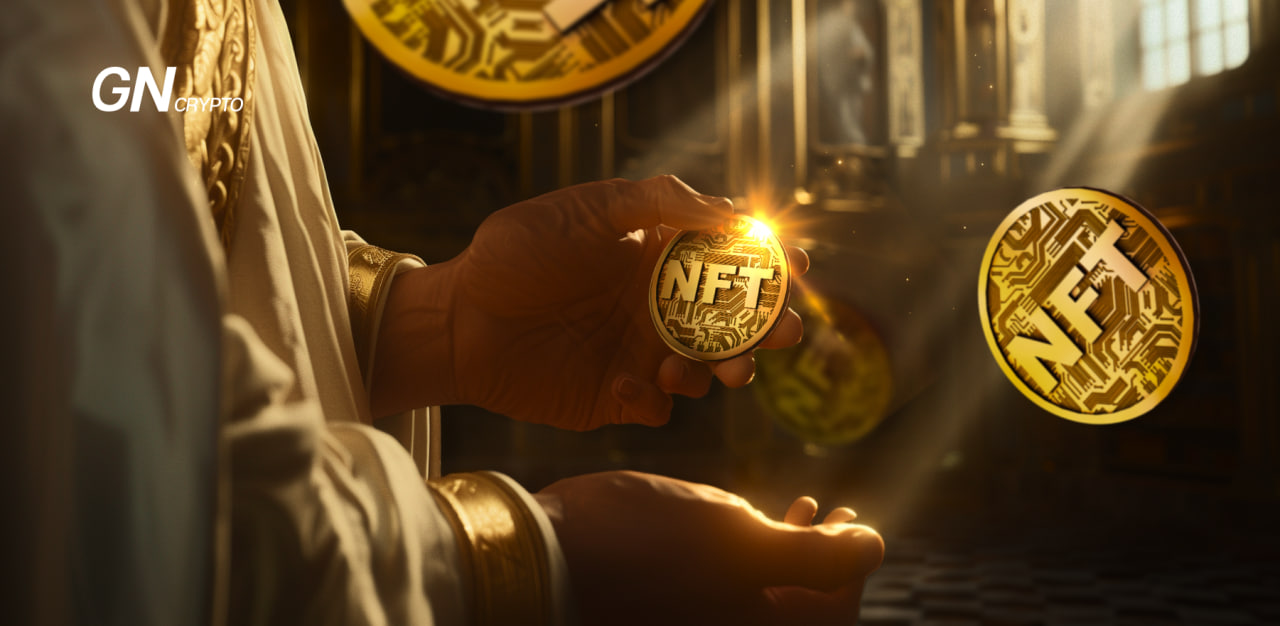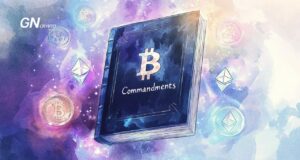Vatican Library Distributes NFTs

The Vatican Library has announced a new initiative, rewarding social media users and donors with NFTs. These tokens will grant exclusive access to rare exhibits within the Apostolic Library.
On this page
The NFTs are termed “soulbound tokens.” Coined by Vitalik Buterin, this term implies that the token is permanently linked to its owner and cannot be resold. For the Vatican's soulbound NFTs, while they hold no financial value, they are forever tied to the corresponding crypto wallet and signify support for the Apostolic Library.
The Vatican Library, an institution steeped in history, is the custodian of documents and relics belonging to the Pope and the Roman Curia. Founded in the 15th century, the library will now digitally reward individuals (currently only Italian citizens) for aiding in the preservation of its manuscript collection.
These NFTs serve as personal keys for accessing and viewing a special collection comprised of high-resolution images. To receive a Silver NFT, which allows access to 15 manuscripts, one must share information about the library’s “Web3 Support Project” on social media by July 16. The Gold NFT, granting access to 21 manuscripts, is given to those who donate to the library’s bank or crypto wallet.
Vatican NFTs as a Key to Exclusive Artifact Collections. Source: OpenSea
It's truly remarkable. The Vatican Library has created its own digital wallet through a collaboration with the Japanese corporation Nippon. In 2023, this world’s oldest tech company digitized Vatican relics, enabling virtual visitors to see the rarest exhibits (we detailed this project previously here).
The partnership between the Vatican City State and Nippon continues to evolve. Nippon's press release points out that even religious institutions owning cultural treasures can leverage Web3 technologies to expand their online community. NFTs will help attract a new audience and boost interest in archival works.
Furthermore, soulbound tokens might serve as an alternative funding source for preserving and digitizing manuscripts. Nippon representatives highlight that the project plans to introduce new digital content formats in the future, such as enabling virtual visits to library spaces through XR technologies.
The OpenSea platform, which supports this initiative with information, monitors the distribution of soulbound NFTs. At the time of writing, the Gold NFTs, created on the Polygon blockchain, had been distributed among 419 different owners, nearly 98% of the total supply—the Vatican minted 425 NFTs. However, the number of Silver NFTs remains undisclosed, providing Italians with an ongoing opportunity to acquire them by sharing information.
The content on The Coinomist is for informational purposes only and should not be interpreted as financial advice. While we strive to provide accurate and up-to-date information, we do not guarantee the accuracy, completeness, or reliability of any content. Neither we accept liability for any errors or omissions in the information provided or for any financial losses incurred as a result of relying on this information. Actions based on this content are at your own risk. Always do your own research and consult a professional. See our Terms, Privacy Policy, and Disclaimers for more details.


























